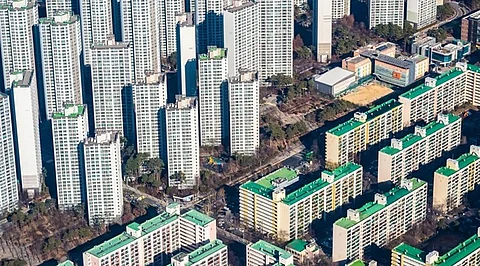

In efforts to revive Hong Kong's flagging housing market and broader economy, Financial Secretary Paul Chan announced in the annual budget address on Wednesday, February 28, 2024, that the government will scrap all property cooling measures, including additional stamp duties for foreign and multiple home buyers.
The surprise move aims to breathe new life into the city's real estate sector, which has seen home prices tumble 20% from their peak in 2021. The weak property market has weighed heavily on Hong Kong's economic outlook.
Chan said the property tightening policies, implemented over the past decade to cool surging home prices, are "no longer necessary amidst the current economic and market conditions."
He stated that the abolition of the stamp duties is effective immediately and includes 15% extra stamp duty on non-resident buyers, 7.5% additional stamp duty on local residents buying second or subsequent homes and extra stamp duties on sellers who "flip" homes within two years
Analysts say eliminating these punitive taxes could help boost housing demand and transactions. But the impact may be limited unless paired with other incentives, given that previous easing last October only led to a modest uptick in sales.
In tandem with the budget announcement, the Hong Kong Monetary Authority (HKMA) also adjusted mortgage rules to help prospective homebuyers.
Key changes include suspending stress tests that required borrowers to have income to cover potential rate hikes. The HKMA also allowed higher loan-to-value ratios, enabling buyers to purchase more expensive homes with smaller down payments.
Shares of property developers jumped on the news, with the Hang Seng Properties Index rising nearly 3% while shares of individual firms like New World Development surged over 8%.
Analysts say the property market incentives, along with HK$1 billion ($128 million) in new tourism promotion funds announced in the budget, will also benefit travel-related sectors.
Chan, early this morning, revealed specific tourism-boosting initiatives that included hosting 80 "mega-events" in H1 2023, monthly fireworks and drone show over Victoria Harbour and promoting "multi-destination tourism" with mainland China cities
The government hopes these and other efforts will revive Hong Kong's crucial tourism industry, which has suffered from reduced visitors from mainland China.
While eliminating property curbs aims to energize the economy, Chan acknowledged that Hong Kong still faces significant fiscal and economic headwinds.
With the city's budget deficit hitting HK$122.3 billion last fiscal year, it remains substantial for 2023-24 at HK$101.6 billion. Chan vowed to "restore fiscal balance" but did not give a specific target date. Hong Kong's GDP grew to a tepid 3.2% in 2023, and Chan forecasts full-year 2024 growth at just 2.5-3.5% amid global economic uncertainty.
However, the surprise scrapping of property cooling measures signals the government's determination to reignite the city's housing market and wider economy after a prolonged downturn. Analysts say the moves could stabilize home prices and transaction volumes while boosting property firms and tourism-reliant sectors.
Join our WhatsApp Channel to get the latest news, exclusives and videos on WhatsApp
_____________
Disclaimer: Analytics Insight does not provide financial advice or guidance. Also note that the cryptocurrencies mentioned/listed on the website could potentially be scams, i.e. designed to induce you to invest financial resources that may be lost forever and not be recoverable once investments are made. You are responsible for conducting your own research (DYOR) before making any investments. Read more here.
